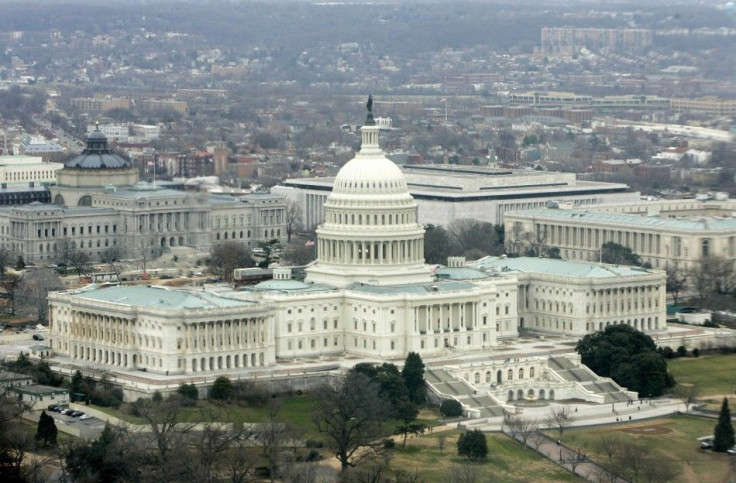Furloughed Federal Contractors Face Weeks Without Pay, Unlikeliness Of Back Pay
On Tuesday, a full two weeks after the start of the federal government shutdown, Ryan will receive what he expects will be his last paycheck until about two weeks after Congress and the White House find a way to restart the government’s daily operations.

The funds are drying up for Ryan -- who asked not be identified by either his real name or employer, due to concern over possible reprisals -- because he is one of hundreds of thousands of furloughed federal contractors, workers whose wages are paid by the federal government to private companies which take a cut before paying their employees with the remaining funds.
Ryan will be paid on Tuesday for work he performed before the shutdown began, but the real financial hit will come at the end of this month, when he will not be paid for the two weeks he has already been out of work. Because he is a contractor, he will also not receive back pay for the days he has spent at home, unless Congress passes a measure to ensure contractors get paid for the hours they missed during the shutdown. That is an unlikely occurrence, though legislators will likely approve a measure to grant back pay to civil servants who are not contractors.
To add insult to injury, Ryan’s health insurance premium will continue to be deducted from his bi-weekly pay, meaning that he will likely end up getting a check for a negative amount in two weeks.
It’s just the way things are for federal contractors struggling to make ends meet as the shutdown drags on, and the impending salary gap is already cramping his and his wife’s modest lifestyle in the suburbs outside Washington, D.C.
“It’s super lame. I’ve been working out a lot, visiting people, more errands, and working on a new song, too. Still hard not to sleep in super late every day though,” he explained. “Basically we’re just not going out to eat or drink, trying to spend as little money as possible. I haven't started looking for [freelance] work yet but may have to do that soon.”
The situation is beginning to really worry Ryan as there seems to be no end in sight, and the 20-something says his emergency fund will likely run out by Nov. 1. His wife has picked up a couple of baby-sitting gigs to help out, but her pay is not nearly enough to replace Ryan’s full-time salary, and the bills are piling up.
The U.S government pays about $500 billion to federal contractors each year, but that spigot has been cut off due to the inability of Congress to bring an end to the shutdown. It’s a situation that has led to great hardships for millions of Americans, but ongoing gridlock in Washington provides little hope of relief for people like Ryan. And the impacts will be felt beyond the families who are missing out on wages, as many furloughed workers are cutting back spending, leading to less revenues for restaurants, stores and other businesses in their communities.
“One thing that annoys me is that people think it’s all okay because we're getting back-paid, which I'm not sure is finalized yet, but in actuality only civil servants are getting back pay. Contractors -- me -- won't, and I think contractors are at least 50 percent of the people furloughed, so this will have a huge hit on the economy,” Ryan said.
“[Contractors] work side by side with the civil servants, basically the only difference is who’s paying them.”
Ryan said he is hopeful that the Thursday deadline for Congress to pass a vital measure to raise the debt ceiling will provide an incentive for it to bring a swift end the government shutdown, but he isn’t counting on it.
“I’m hoping the impending debt ceiling thing will force them to action. They won’t want to let the government default on its loans, so hopefully they'll reopen the government when they agree to raise the debt ceiling,” he said.
“But after this stupidity I wouldn't put anything past them.”
© Copyright IBTimes 2024. All rights reserved.





















